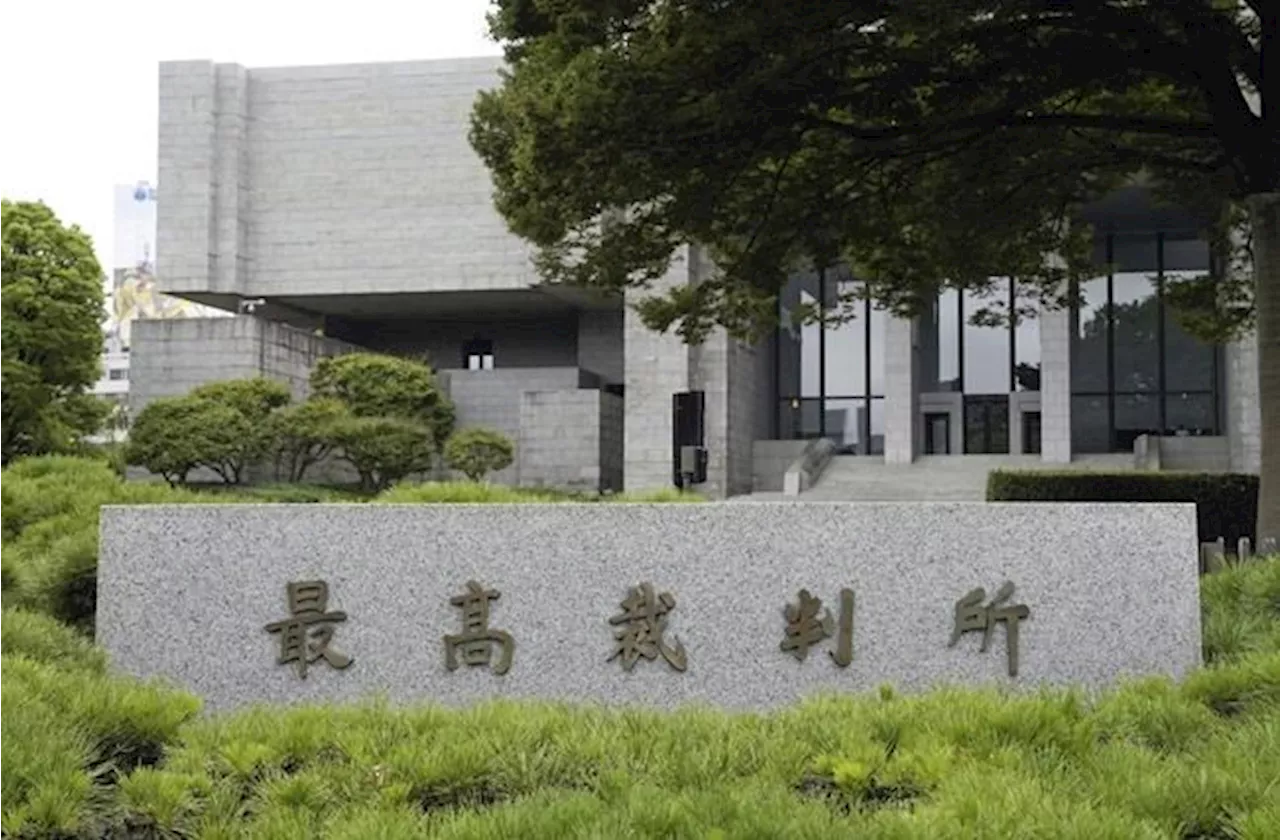TOKYO (AP) — Japan’s Supreme Court on Wednesday ruled that a law requiring transgender people to have their reproductive organs removed in order to officially change their gender is unconstitutional.
The decision by the top court’s 15-judge Grand Bench was its first on the constitutionality of Japan’s 2003 law requiring the removal of reproductive organs for a state-recognized gender change, a practice long criticized by international rights and medical groups.
The decision comes at a time of heightened awareness of issues surrounding LGBTQ+ people in Japan and is a major victory for that community. LGBTQ+ activists in Japan have recently stepped up efforts to pass an anti-discrimination law since a former aide to Prime Minister Fumio Kishida said in February that he wouldn’t want to live next to LGBTQ+ people and that citizens would flee Japan if same-sex marriage were allowed.
Rights groups and the LGBTQ+ community in Japan have been hopeful for a change in the law after a local family court, in an unprecedented ruling earlier this month, accepted a transgender male's request for a gender change without the compulsory surgery, saying the rule is unconstitutional. Surgery to remove reproductive organs is not required in most of some 50 European and central Asian countries that have laws allowing people to change their gender on official documents, the Shizuoka ruling said. The practice of changing one's gender in such a way has become mainstream in many places around the world, it noted.
Canada Latest News, Canada Headlines
Similar News:You can also read news stories similar to this one that we have collected from other news sources.
 Georgia Supreme Court sends abortion law challenge back to lower court, leaving access unchangedATLANTA (AP) — The Georgia Supreme Court on Tuesday rejected a lower court ruling that the state's restrictive abortion law was invalid, leaving limited access to abortions unchanged for now.
Georgia Supreme Court sends abortion law challenge back to lower court, leaving access unchangedATLANTA (AP) — The Georgia Supreme Court on Tuesday rejected a lower court ruling that the state's restrictive abortion law was invalid, leaving limited access to abortions unchanged for now.
Read more »
 Georgia Supreme Court sends abortion law challenge back to lower court, leaving access unchangedATLANTA (AP) — The Georgia Supreme Court on Tuesday rejected a lower court ruling that the state's restrictive abortion law was invalid, leaving limited access to abortions unchanged for now.
Georgia Supreme Court sends abortion law challenge back to lower court, leaving access unchangedATLANTA (AP) — The Georgia Supreme Court on Tuesday rejected a lower court ruling that the state's restrictive abortion law was invalid, leaving limited access to abortions unchanged for now.
Read more »
 Georgia Supreme Court sends abortion law challenge back to lower court, leaving access unchangedATLANTA (AP) — The Georgia Supreme Court on Tuesday rejected a lower court ruling that the state's restrictive abortion law was invalid, leaving limited access to abortions unchanged for now.
Georgia Supreme Court sends abortion law challenge back to lower court, leaving access unchangedATLANTA (AP) — The Georgia Supreme Court on Tuesday rejected a lower court ruling that the state's restrictive abortion law was invalid, leaving limited access to abortions unchanged for now.
Read more »
 Georgia Supreme Court sends abortion law challenge back to lower court, leaving access unchangedThe Georgia Supreme Court on Tuesday rejected a lower court ruling that the state's restrictive abortion law was invalid, leaving limited access to abortions unchanged for now.
Georgia Supreme Court sends abortion law challenge back to lower court, leaving access unchangedThe Georgia Supreme Court on Tuesday rejected a lower court ruling that the state's restrictive abortion law was invalid, leaving limited access to abortions unchanged for now.
Read more »
 Georgia Supreme Court sends abortion law challenge back to lower court, leaving access unchangedATLANTA (AP) — The Georgia Supreme Court on Tuesday rejected a lower court ruling that the state's restrictive abortion law was invalid, leaving limited access to abortions unchanged for now.
Georgia Supreme Court sends abortion law challenge back to lower court, leaving access unchangedATLANTA (AP) — The Georgia Supreme Court on Tuesday rejected a lower court ruling that the state's restrictive abortion law was invalid, leaving limited access to abortions unchanged for now.
Read more »
 Nigeria opposition asks Supreme Court to overturn President Tinubu's victoryExplore stories from Atlantic Canada.
Nigeria opposition asks Supreme Court to overturn President Tinubu's victoryExplore stories from Atlantic Canada.
Read more »
